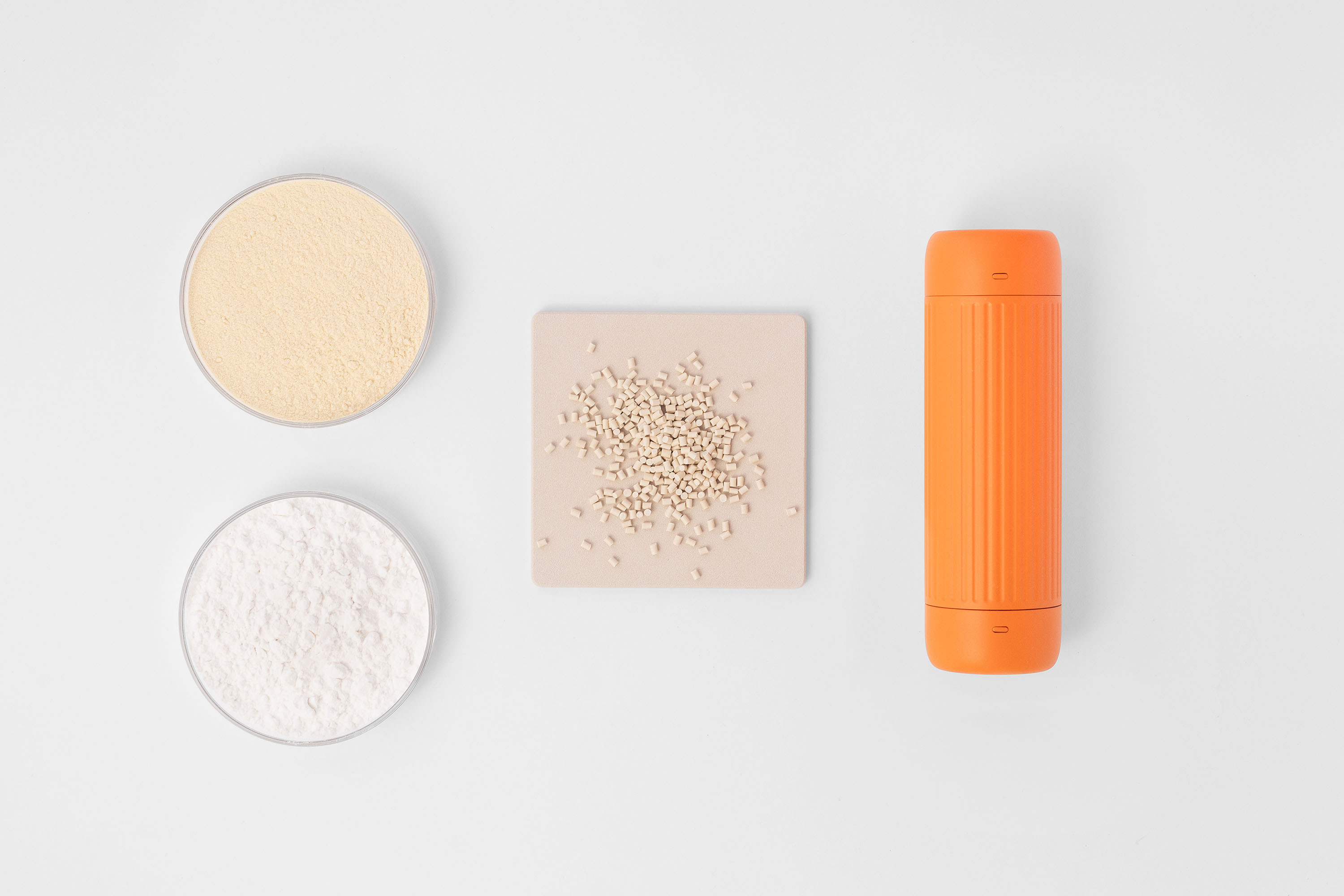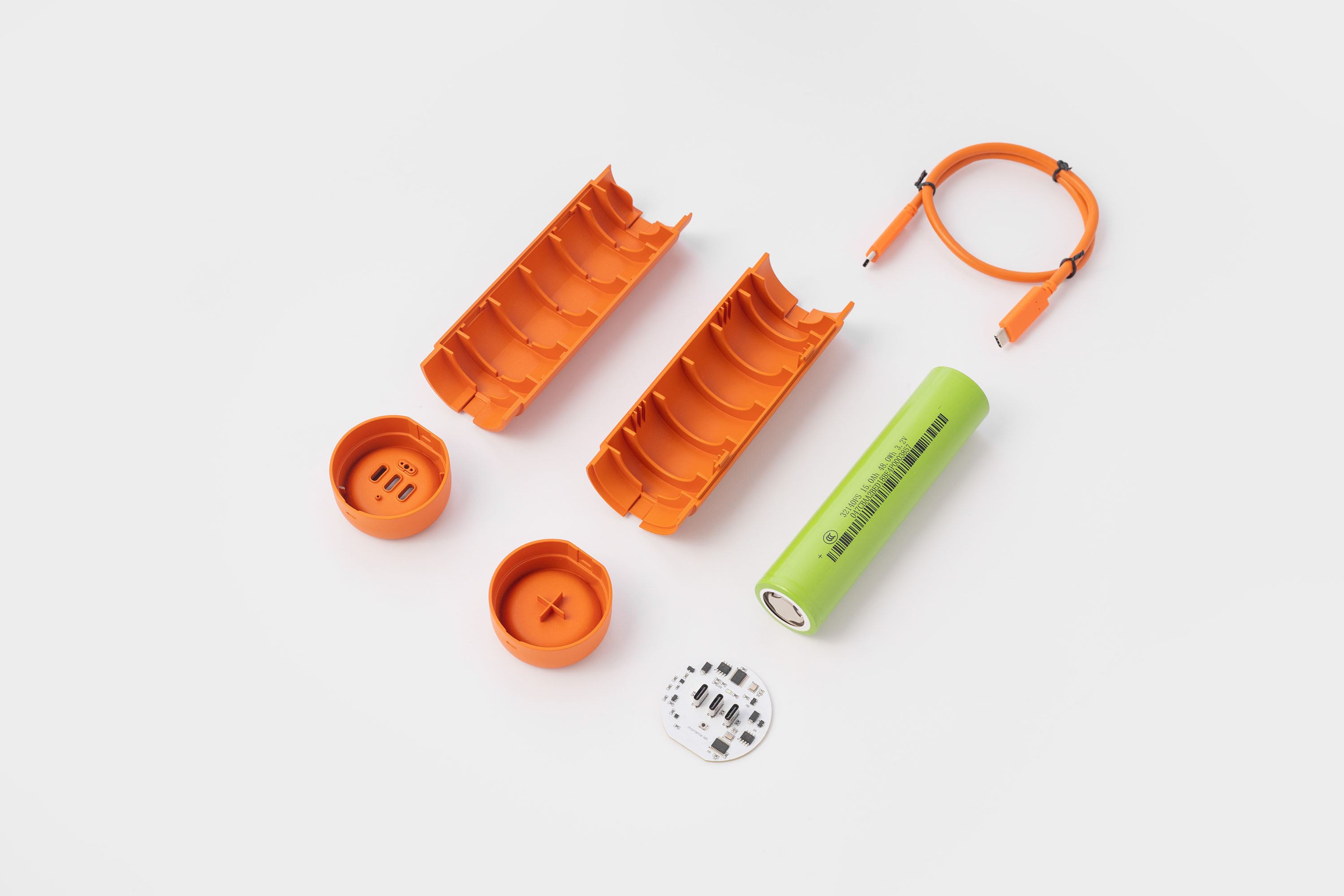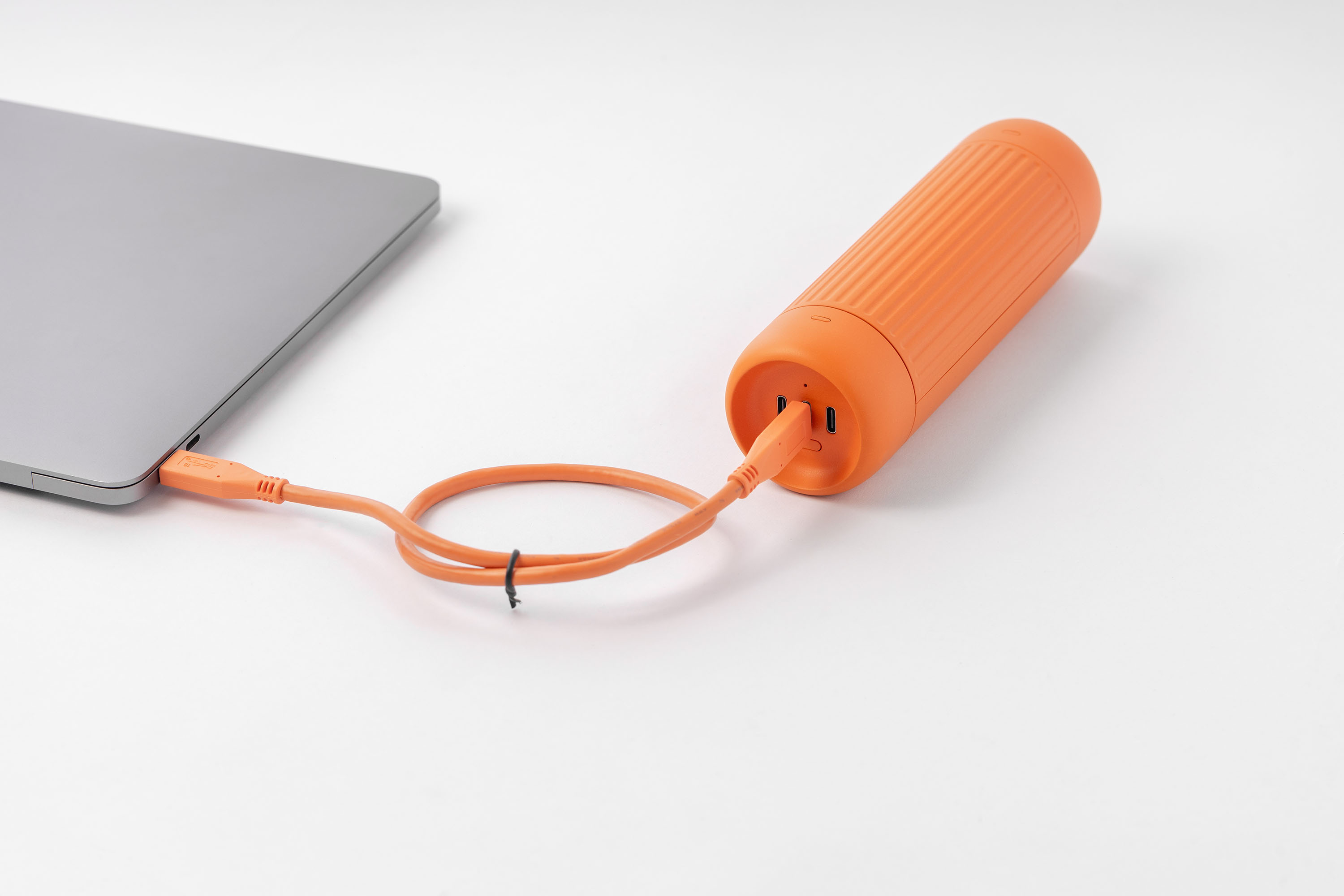Earthmade
Reducing the impact of every-day tech with plant-based materials.


Earthmade is a product company that creates tools for people to live lighter. They do this by utilising innovative plant-based materials in new ways. One of these materials is Bamboo-O. To date their focus has been on everyday products in the world of coffee, from travel cups to bean storage solutions, they came to Morrama to explore what came next.
Bamboo-O is a plastic-free, low-carbon alternative to conventional plastics. Made from bamboo fibres for strength and plant starch for flexibility, it mirrors many of the performance traits of the widely used plastic - polypropylene. But there’s one crucial difference: while polypropylene persists for decades, Bamboo-O is designed to break down.
As innovation accelerates and new products flood the market, is it time to limit ourselves to a few core materials within each product category? Perhaps that's too far… but Industrial design must evolve beyond user-centric thinking to embrace a truly holistic approach, one that considers a product’s full lifecycle. After all, a product’s lifespan doesn’t mark its end; its material legacy continues long after use.
- Ben Melvin, Senior Lead
With a shelf-life of two to five years, Bamboo-O gradually loses flexibility as it begins to degrade. In moist, home-composting conditions, this process accelerates significantly, breaking down within 6 to 18 months.

A key opportunity of Bamboo-O is its versatility. Unlike many plastic-free, plant-based materials, it can be injection moulded with accuracy. With this in mind we considered what products with a typical lifespan of a few years are typically reliant on plastics?
From travel plugs to handheld fans, portable tech items are often bought for temporary use, subjected to intensive wear, and then either discarded or stored away and forgotten about. The low-value yet highly-present nature of these products also makes them ideal for merchandising for corporate gifts or brand promotion. Leaning into the temporary nature of these products, we saw an opportunity for Earthmade to propose a more sustainable solution with a compelling narrative.

The Earthmade power-bank matches the lifespace of the outer material to the components inside.
When used purposefully, batteries typically last between two and five years before degrading. Yet the plastic housings they’re enclosed in can persist for centuries and, even when disposed of correctly, are rarely recycled.
Bamboo-O has the potential to be disposed of in a way that will never persist on our earth providing the housing can be disassembled from the components inside. Designing a power bank that could be intuitively separated became essential. Inspired by the snap-fit mechanism used in Wild deodorant packaging, visible snaps were integrated into either end of the device. These could be pressed with a teaspoon or similar object, allowing the body to slide apart and reveal the battery and a simple PCBA. Each component was designed with its own end-of-life pathway. The outer casing can be buried in the garden or placed in a home composter, where it will degrade within 18 months. The battery can be dropped off at a local supermarket collection point, and the PCBA sent via a small free-return envelope for e-waste recycling.
This is just the beginning, a proof of concept. Earthmade is challenging the status quo of materiality in electronics, pushing for alternatives that align with both performance and planetary responsibility. Consumers are increasingly proactive, making conscious choices to reduce plastic use, waste, and especially microplastics. Bamboo-O isn’t a one-size-fits-all solution, but in countless applications, it offers a valuable resource for those developing planet-minded products, ones that serve users, businesses, and the environment alike.